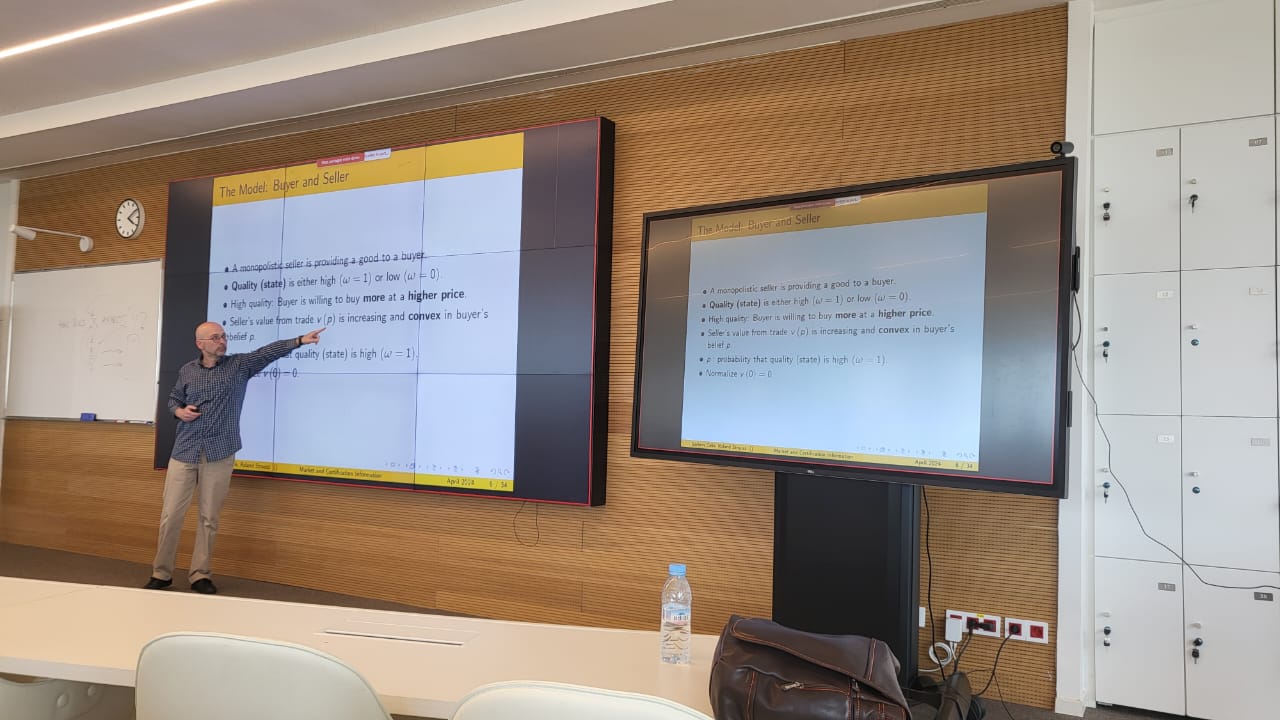
- This event has passed.

Certification Strategies & Environmental News Impact: Insights from Africa Business School
On April 18th, two conferences took place at Africa Business School:
Dr. Gorkem Celik from ESSEC Business School presented “Selling Certification and Market Information,” a paper co-written with Dr. Roland Strausz from Humboldt-Universität zu Berlin. In their paper, they consider a monopolistic certifier offering certification services to a seller with partial private information. The certifier can publicly reveal the private information of a seller as well as publicly certify additional market information about the good’s quality. They show that the certifier maximizes profits by fully revealing the seller’s private information and by only partially revealing the additional information about the good’s quality. Thus, optimal contracts eliminate any inefficiencies associated with private information, but by not fully eliminating market uncertainty, inefficiencies remain. The certifier finds it suboptimal to provide full market information as it requires high information rents from the privately informed seller.
Following this, Dr. Marie Bessec from Paris Dauphine University presented “The Impact of Green Sentiment Measured From Media Data on Financial Markets,” a paper co-written with Dr. Julien Fouquau from ESCP Business School. Their paper examines the impact of environmental news coverage in US newspapers on stock markets. Using textual analysis with a dictionary-based approach, they obtained several measures of attention, tonality, and uncertainty in the coverage of environmental news in major US newspapers. They considered different weighting schemes to account for the visibility and relevance of the text sources, as well as several sets of newspapers to measure the possible impact of their editorial line. Their results show that greater attention to environmental news in the US media reduced the excess returns of carbon-intensive stocks and increased their volatility over the last decade, especially when the coverage was uncertain. In contrast, green assets are less sensitive to the coverage of environmental news. Restricting the corpus of texts to conservative newspapers mitigates the impact of coverage. Overall, their results illustrate how rising environmental concerns lead investors to change their asset allocation.
Details
- Date:
- April 18, 2024
- Event Categories:
- Concluded and Upcoming Research Seminars, Conferences, Home_Events, Slider_Events

